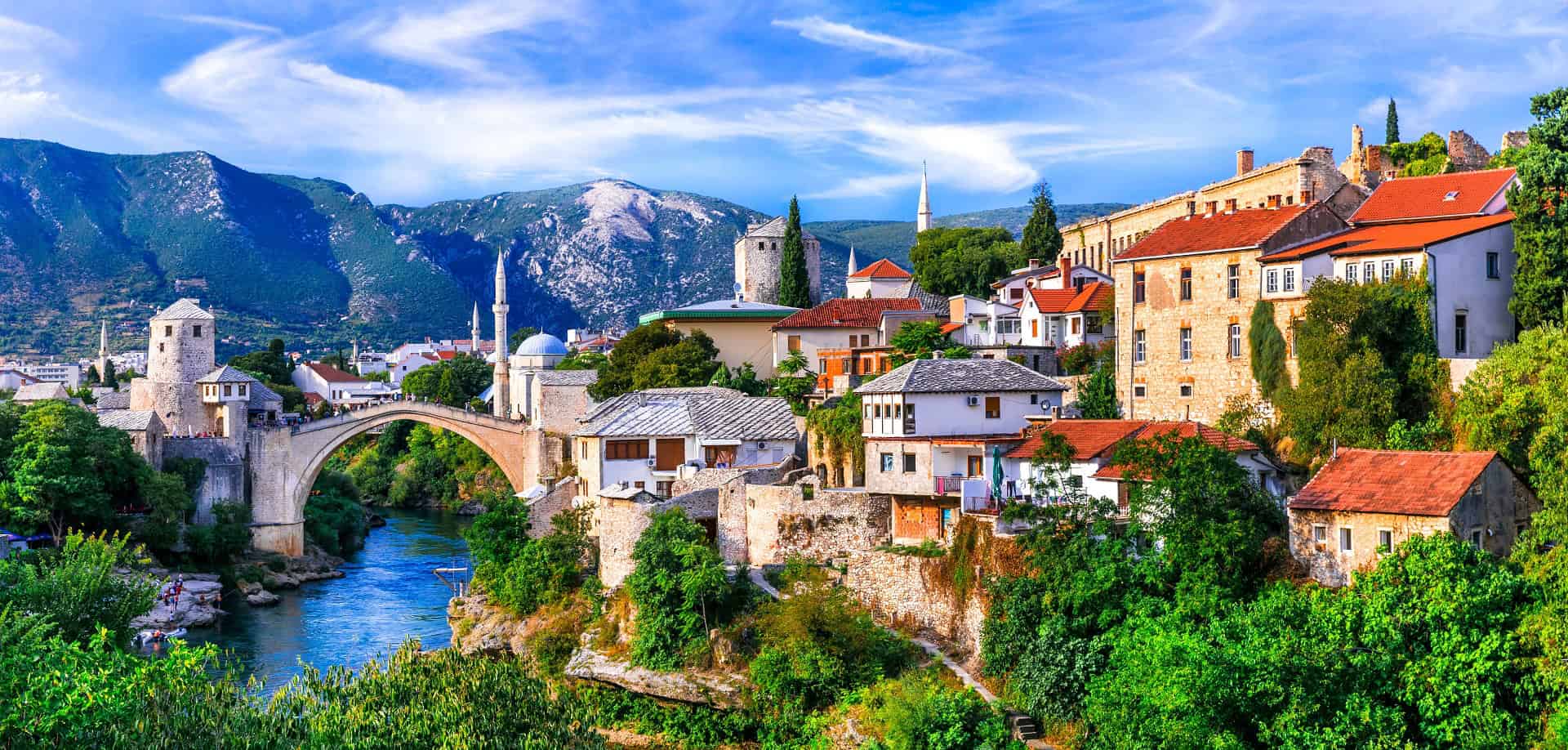Bosnia and Herzegovina (BiH) has a rich cultural heritage, stunning natural beauty, and an emerging real estate market. With its picturesque landscapes, from the stunning Dinaric Alps to the historic cities of Sarajevo and Mostar, Bosnia increasingly attracts foreign investors seeking opportunities in its real estate sector. However, foreign buyers must understand the local laws and regulations regarding property ownership before purchasing property. This article explores whether foreigners can buy property in Bosnia, the key factors to consider when investing in Bosnian real estate, and why Bosnia could be an attractive destination for property investment.

Can Foreigners Buy Property in Bosnia?
Yes, foreigners can buy property in Bosnia, but the process is subject to certain restrictions and regulations. While foreign nationals are allowed to purchase property in Bosnia, they must meet specific legal requirements and adhere to the rules outlined in the country’s real estate laws. There are some limitations in place, particularly for non-EU citizens, regarding the types of properties that can be bought and the process involved in ownership. However, Bosnia offers opportunities for foreign buyers to invest in real estate, provided they comply with local regulations and work with the appropriate professionals.
Why Invest in Real Estate in Bosnia?
Attractive Property Market at Competitive Prices
Bosnia’s real estate market is still developing, which presents a superb opportunity for foreign investors to purchase properties at relatively low prices compared to other European countries. Bosnia’s cost of living and property prices remain affordable, especially compared to Western European nations. In cities like Sarajevo, Mostar, and Banja Luka, real estate prices have been rising steadily, making it an excellent option for foreign investors looking to purchase property at a competitive price. This price advantage, coupled with the country’s beautiful landscapes and growing economy, makes Bosnia desirable for real estate investment.
Emerging Tourism Sector
Bosnia and Herzegovina is quickly gaining recognition as a tourist destination. With its charming medieval towns, stunning rivers and lakes, and outdoor activities like hiking, skiing, and rafting, the country attracts an increasing number of tourists yearly. Cities like Sarajevo and Mostar are popular tourist hotspots, and the country’s natural beauty, such as the Kravica Waterfalls and Sutjeska National Park, continues to draw visitors worldwide. Foreign investors can capitalize on the growing tourism industry by purchasing properties in areas popular with tourists and turning them into short-term rental properties or vacation homes.
Growing Demand for Commercial and Residential Real Estate
Bosnia’s economy has been showing gradual improvements in recent years, with sectors like banking, manufacturing, and tourism driving growth. As the country continues to develop, the demand for residential and commercial real estate has increased. In cities like Sarajevo, there is a growing demand for residential apartments, office spaces, and retail outlets. For investors looking to purchase commercial properties, Bosnia’s developing infrastructure and expanding economy present opportunities for long-term returns. The real estate market is diverse, with options for residential homes, commercial buildings, and land, allowing investors to choose from various investment strategies.
Favorable Location for Regional Investment
It is located at the crossroads of Central and Southeastern Europe, and Bosnia and Herzegovina benefits from its strategic position. It is well-connected to neighboring countries like Croatia, Serbia, and Montenegro, making it an appealing location for foreign investors wishing to tap into the broader regional market. The country is also a candidate for European Union membership, which could further strengthen its economic ties to Europe and attract more foreign investment. Investors seeking a foothold in Southeast Europe may find Bosnia a strategic and accessible location.
Government Incentives for Foreign Investors
Bosnia’s government has tried to attract foreign investment by implementing policies that encourage foreign ownership and real estate development. While foreign buyers must navigate some legal processes, the government has been working to streamline the procedures for property transactions, making it easier for international investors to buy real estate in the country. Additionally, there are no significant restrictions on foreign ownership of residential property, except for specific areas and legal requirements that must be followed. The government is also focused on improving the country’s infrastructure and investment climate, which helps foster a welcoming environment for international investors.
Favorable Exchange Rate for Foreign Buyers
For investors from countries with stronger currencies, Bosnia offers an advantage in exchange rates. The Bosnian convertible mark (BAM) is relatively stable against major currencies such as the US dollar, the euro, and the British pound. This makes property investments in Bosnia more affordable for foreigners. Additionally, the cost of property, utilities, and general living expenses in Bosnia is significantly lower than in other European countries, allowing investors to stretch their capital further. This price advantage is a compelling factor for those considering real estate purchases in Bosnia.
Key Considerations for Foreign Buyers
Legal Restrictions for Foreign Nationals
While Bosnia and Herzegovina allows foreign nationals to purchase property, there are some restrictions to be aware of, especially for non-EU citizens. Foreign investors can generally buy property in Bosnia if they meet certain conditions, such as reciprocity agreements between Bosnia and the foreign investor’s home country. This means some countries have mutual agreements with Bosnia, allowing their citizens to buy property, while others may not. Additionally, foreign buyers must have a permanent residence permit in Bosnia or be a legal entity registered in the country to purchase property.
Rural Property Restrictions
Foreigners face additional restrictions when purchasing agricultural or rural land. While foreign buyers can own property in urban areas, rural land ownership may be more challenging. Bosnia’s property laws make it more difficult for non-citizens to buy agricultural land, especially in certain regions. Foreign buyers interested in purchasing agricultural land may need to partner with local individuals or businesses or comply with additional legal requirements. Understanding these restrictions is essential before pursuing land investments in rural Bosnia.
Navigating the Legal Process
Buying property in Bosnia involves several legal steps that may be unfamiliar to foreign buyers. To complete a property purchase, buyers must work with a notary to formalize the transaction and register the property with the local land registry office. Foreign buyers must also obtain a valid tax identification number (TIN) and open a local bank account to complete the transaction. It’s highly recommended that a local lawyer or real estate agent be hired to help navigate the bureaucracy and ensure the transaction complies with Bosnian laws.
Financing for Foreign Investors
Securing financing for property purchases as a foreigner can be more challenging in Bosnia than in other countries. Bosnian banks tend to offer limited financing options for foreign buyers, and the terms may not be as favorable as those available to residents. Many foreign investors opt to pay for their properties in full upfront or seek alternative financing options through international banks. However, this can be an obstacle for some investors, particularly those who wish to finance a property purchase over time. Exploring all financing options and planning accordingly when buying property in Bosnia is important.
Taxes and Costs for Property Owners
Foreign buyers who purchase property in Bosnia should know the taxes and fees associated with property ownership. Property taxes in Bosnia are relatively low, but they still vary based on the location and value of the property. In addition to property taxes, foreign investors may also be required to pay transaction fees, notary fees, and registration costs. It’s essential to factor in these expenses when evaluating the profitability of a property investment in Bosnia. Additionally, there may be taxes on rental income, capital gains tax, and other local taxes to consider.
Frequently Asked Questions
Can foreigners buy property in Bosnia and Herzegovina?
Yes, foreigners can buy property in Bosnia and Herzegovina, but they must meet certain legal requirements and comply with the country’s property laws. There are some restrictions for non-EU citizens, particularly regarding rural land.
Are there any restrictions on foreign ownership of property in Bosnia?
Yes, some restrictions exist on foreign ownership of agricultural and rural land. Foreigners may be required to follow specific legal processes to purchase land in these areas.
Is it required to have a residence permit in order to buy property in Bosnia?
Foreign buyers typically need a residence permit or must be registered as a legal entity in Bosnia to purchase property. The process is subject to reciprocity agreements between Bosnia and the buyer’s home country.
What is the process for buying property in Bosnia?
The property-buying process involves obtaining a tax identification number (TIN), working with a notary, and registering the property with the local land registry. Acquiring the help of a local lawyer or real estate agent to assist with the process is advisable.
Are there taxes on property ownership in Bosnia?
Yes, property taxes, registration fees, and other costs are associated with property ownership in Bosnia. The tax rates are generally low, but they may vary based on the location and value of the property.
Conclusion
Bosnia and Herzegovina presents a unique opportunity for foreign investors looking to enter the real estate market in Southeast Europe. With its attractive property prices, growing economy, and emerging tourism sector, Bosnia offers significant potential for investment. While there are certain legal restrictions, especially concerning rural land and non-EU buyers, purchasing property in urban areas is relatively straightforward for foreigners who meet the requirements. By understanding the local property laws and working with local professionals, foreign investors can successfully navigate the Bosnian real estate market and capitalize on the country’s growth potential.










